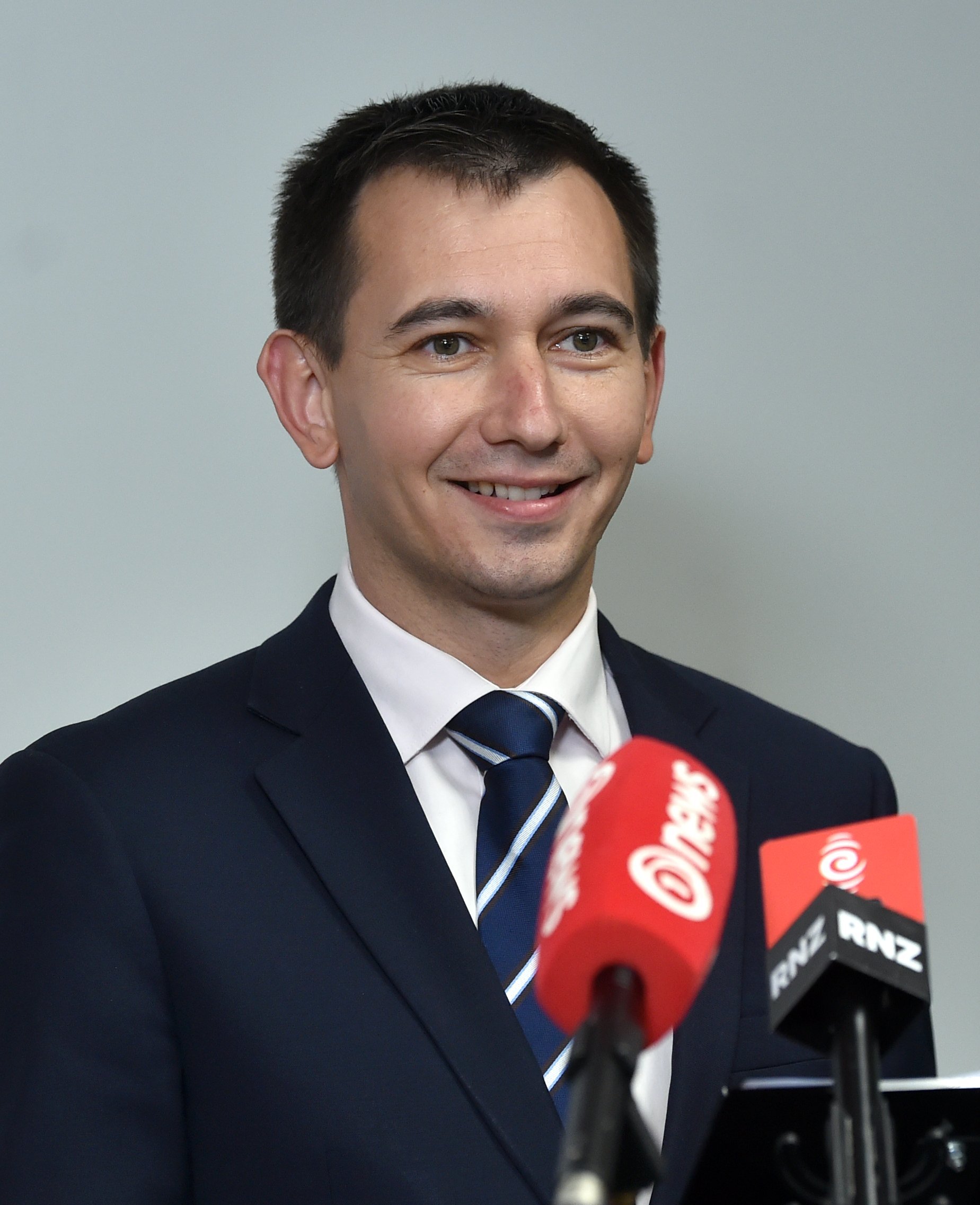

Health Minister Simeon Brown and me at the movies. Together.
It could have been a media moment, although not quite on a par with that attention-seeking couple hogging the limelight — Taylor and Travis.
And let’s be clear. We would not have been a kissing couple. Just a couple of movie-goers engaging over a common interest in health services.
No florist shops’ worth of flowers would have been required for the photo op. The bunch of daffs the Cancer Society gave Simeon before its annual fund-raiser would do me.
In turn, I would have stumped up for a boysenberry chocolate-dipped ice cream and, unlike my sometime movie companion, would not have suggested he wait five minutes to unfurl this delight and tuck in.
I know nurses keen for Simeon to spend a shift with them to get the reality of what goes on in our busy hospitals.
Simeon gives the impression they are irresponsible, overpaid and unreasonable for striking.
But he is a busy man and probably can’t spare time for a whole shift, and maybe overtime, in a situation where he might not be particularly welcome. A wig and a false beard might not do the business.
He could have snuck into the movie theatre with me in the dark and nobody would have been any the wiser.
The movie we would have attended was one of the many excellent offerings in this year’s New Zealand International Film Festival, Late Shift, a Swiss/German production.
It followed a nurse, Floria (played by Leonie Benesch), and her shift at a short-staffed Swiss hospital.
Someone’s called in sick and not been replaced, leaving two nurses and a student to cope with 25 patients.
Every interaction is pressured, and Floria is constantly playing catch-up.
We see her rushing from one task to another, being interrupted, taking on jobs because there is no-one else to do them, mucking up a medication, standing up to a doctor who was avoiding delivering bad news to a patient, dealing with difficult families and patients, and trying to stay sane.
We know she is a woman who wants to do her best for every one of her patients, but time is against her.
In one moving scene she sings a lullaby to calm a dementia patient, who then joins in, but it makes us nervous as viewers because we are also aware that poignant and caring interaction will make Floria late for something else.
In the movie, the hospital has special rooms for private patients who have paid for the privilege (not that we would want Simeon to get any ideas about that).
An obnoxious man in one such room throws a tantrum about the lateness of his peppermint tea, delayed by Floria completing myriad tasks.
Exasperated, she removes his expensive watch and throws it out the window. We know this is wrong, but we cheer because we understand her frustration.
The situation with this patient, who turns out to be terrified about his diagnosis, is resolved. This is a drama, after all.
After one and a-half hours of this, I would have hoped Simeon might have some idea of the relentlessness of a nurse’s shift on a short-staffed ward because, although this was filmed in Switzerland, there is a ubiquity to its message.
One thing Floria does not appear to have to deal with is outmoded infrastructure or faulty equipment, something I suspect would be different in many of our hospitals.
If Simeon had been with me, we would have been able to discuss the film’s relevance afterwards.
If our chat extended to this week, I’d want to know what he makes of Health New Zealand Te Whatu Ora incurring the wrath of the Ombudsman, again.
Stuff reported HNZ has been ordered to apologise after the new Ombudsman found it acted unreasonably, and unlawfully withheld data showing more than a third of all public hospital shifts last year were understaffed.
In 2022, 38% of shifts were short-staffed, compared with 40% in 2023 and 37% between January and November last year.
In some wards, staffing was considered unsafe on more than 90% of shifts.
The New Zealand Nurses Organisation, the main nurses’ union, had to fight for a year to get this information released.
What a surprise it cast doubt on the messages HNZ, and the government, have been pushing about staffing adequacy.
Giving a simplistic portrayal of the tool used to produce this data, HNZ says it is not the best way of measuring safe staffing.
However, its use had been agreed with the union and there is no agreement yet on a replacement.
Although we missed the opportunity to be movie mates, I hope Simeon has found time to reflect on the way he and HNZ are behaving and whether they could do better.
• Elspeth McLean is a Dunedin writer.














